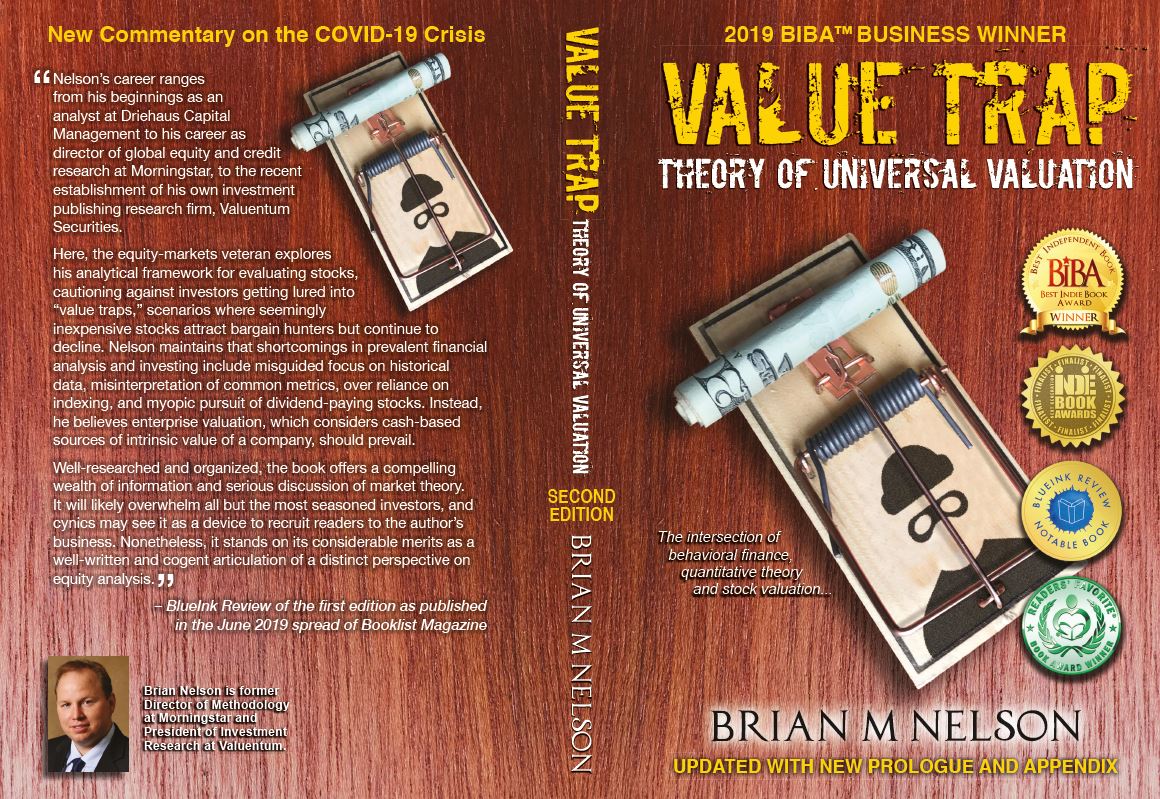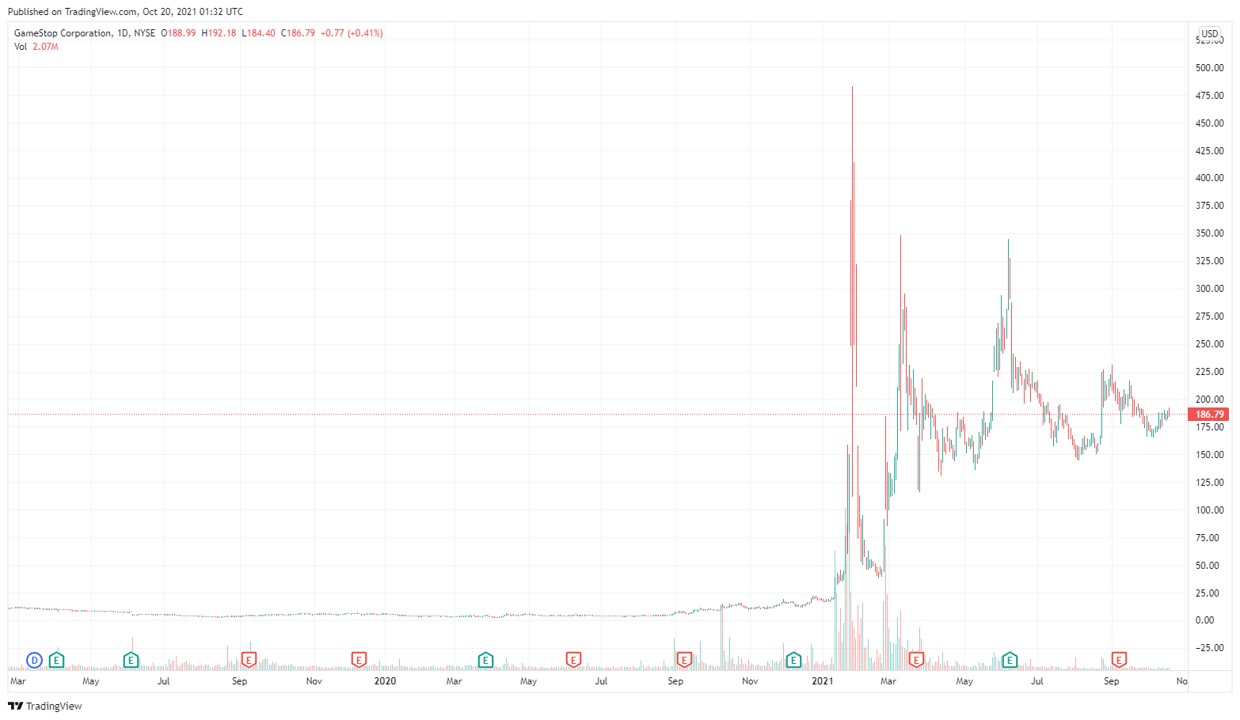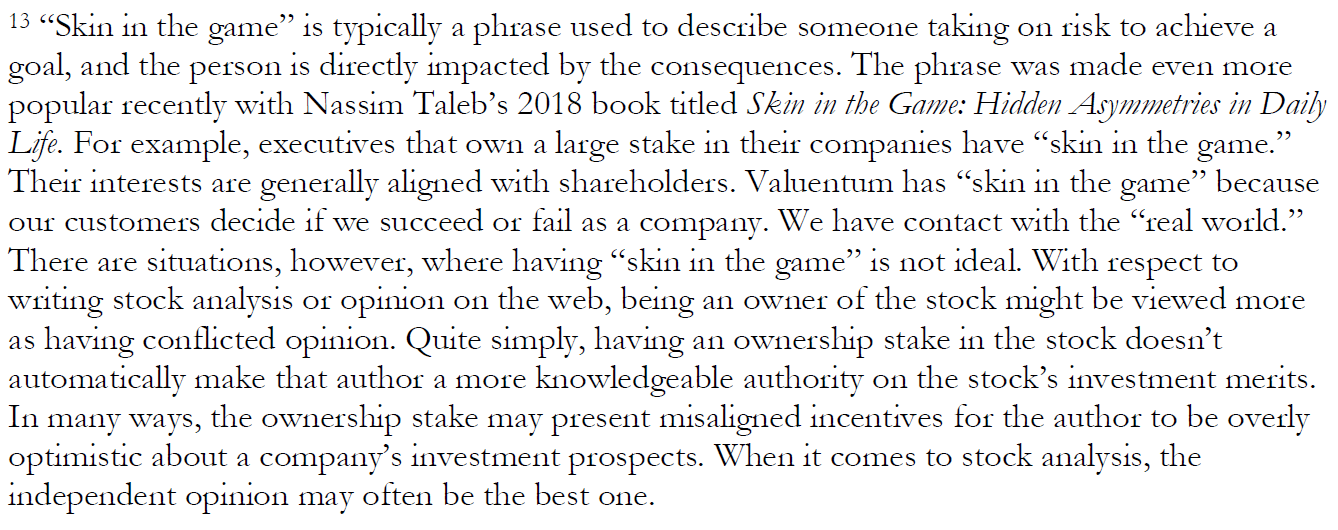Member LoginDividend CushionValue Trap |
Quants and High-Frequency Trading the Real Cause of the GameStop Frenzy?
publication date: Oct 19, 2021
|
author/source: Brian Nelson, CFA
Image: The cause of the GameStop trading frenzy remains largely unclassified as it appears to us that quant and high-frequency trading played a much bigger role in the market disruption than what is being reported. By Brian Nelson, CFA Third-quarter 2021 earnings season has been thrust upon a marketplace that has been preoccupied with talk over supply chain disruptions, increasing inflation expectations, unfortunate distractions from trading activity by key officials at the Fed, and Chinese regulatory unease. We think these items had largely been the key reasons for the pullback in the markets in recent weeks. However, with news that President Biden seems to continue to support Jerome Powell as Fed Chief (we’ll know for sure in February) and the SEC easing off a bit on cryptocurrency pressures--having allowed the trading of the first futures-based Bitcoin ETF (BITO)--and chatter from the regulatory crackdown in China slowing, markets are looking like they might break out. Even Facebook (FB) has caught a bid of late as investors start to again focus on what matters: fundamentals and earnings. On October 18, the Securities and Exchange Commission (SEC) released its “GameStop (GME) Report,” a staff analysis of what drove the widespread volatility in so-called meme stocks earlier this year. The SEC noted that there was a surge in the number of individual investors during the meme stock frenzy (the number of unique accounts trading GME increased to nearly 900,000 from 10,000, for example), but the report also noted that the median account balance at Robinhood Markets (HOOD) stood at just ~$240. We find it very difficult to believe that individual investors acting in concert were the major driver behind the meme-stock trading frenzy earlier this year. From our perspective, the report seemed to center more on dismissing “short covering” and “gamma squeezes” as the causes for the GME trading volatility and highlighting concerns related to the “gamification” of investing regarding the controversial practice of payment for order flow (“PFOF”) than getting to the heart of the issue that is challenging market integrity and structure. Our thesis has always been that the widespread volatility that shook equity markets during the meme-stock frenzy was largely driven by the price-agnostic trading, including retail traders but mainly from quant hedge funds--trend, momentum or algorithmic, high-frequency, or some combination of all four. The narratives of some glorified individual investor revolt against Wall Street remain, but the report clearly states on page 21 that: “In addition to individual investor activity, there was significant participation by institutional investors, including several hedge funds that purchased GME. Some of those purchases may have been used, at least in part, to cover short positions.” We believe “significant” to be material, especially when we do the math. For example, assuming 900,000 accounts at ~$240 an account, that’s only $216 million, or about 1.5% of GameStop’s existing market capitalization of ~$14.2 billion, which is much lower than it was during the height of the meme-stock frenzy. The SEC also noted that “more than 100 stocks experienced large price moves or increased trading volume that significantly exceeded broader market movements,” with many of the stocks revealing high short interest as a percentage of float. We find it very difficult to believe that retail traders with small average account balances were whipsawing more than 100 stocks, all at once, some with market capitalizations in the tens of billions, when the math simply doesn’t add up. For example, on January 22, 2021, alone, GME traded 197.2 million shares with the stock increasing from $43 to $72. That is $8.48-$14.2 billion in trading value on just one day, on one meme stock. Serious money was moving these stocks--not likely a meaningful percentage of which came from Robinhood customers or from accounts belonging to investors with an average age of 19, the latter representing a large portion of the surge in new brokerage accounts opened in 2020. The SEC report does not clearly disclose how many more institutional accounts--those with account values of $50 million or more--started to more actively trade in GameStop during the frenzy, but we estimate by eyeballing the graphical representation provided that perhaps there was a 5-10 fold increase from mid-January to late-January (and a huge increase from the beginning of the month). The SEC said as much in the report that “quantitative and high-frequency hedge funds, joined the market rally (in GameStop),” meaning that there is much more to the GameStop story than what appears at face value. Concluding Thoughts We think the SEC staff put out a fantastic “GameStop Report” with some excellent information. However, the report did not get to the crux of the matter, failing to disclose what actually caused the extreme market volatility in meme stocks, while glossing over the substantial increase in institutional accounts, likely belonging to quant/trend/momentum funds, that contributed to the trading frenzy this year. We think investors and market participants deserve to know more about what caused this threat to market integrity and structure as the continued proliferation of which (price-agnostic trading) may only grow larger and larger in the coming decades. If it was quant trading, then we encourage the SEC to take steps to ensure that such trading is curbed effectively as it is clear that such price-agnostic activity is not contributing to market efficiency. ----- Tickerized for BITO, GME, HOOD, XRT, GAMR, DDS, BBBY, FIZZ, KOSS, NAKD, AMC, NOK, COIN, IBKR, SCHW, TD, VIRT, NDAQ, CME, ICE, CBOE, MORN, FDS, MCO, SPGI, INFO It's Here!
The Second Edition of Value Trap! Order today!

-----
Image Source: Value Trap ---------- Valuentum members have access to our 16-page stock reports, Valuentum Buying Index ratings, Dividend Cushion ratios, fair value estimates and ranges, dividend reports and more. Not a member? Subscribe today. The first 14 days are free. Brian Nelson owns shares in SPY, SCHG, QQQ, DIA, VOT, and IWM. Valuentum owns SPY, SCHG, QQQ, VOO, and DIA. Brian Nelson's household owns shares in HON, DIS, HAS. Some of the other securities written about in this article may be included in Valuentum's simulated newsletter portfolios. Contact Valuentum for more information about its editorial policies. |




2 Comments Posted Leave a comment